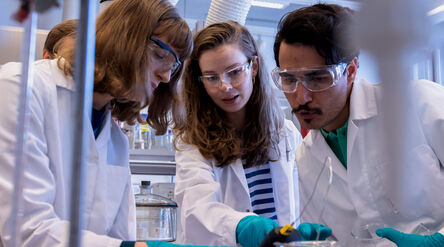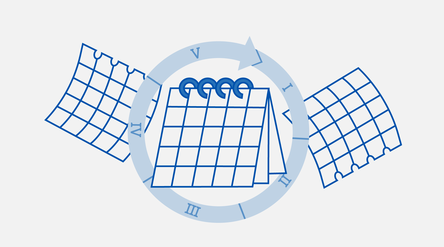Nordic Master Programme in Polymer Technology
Nordic Master's Programme in Polymer Technology is organized by the School of Chemical Engineering.
Polymer Technology
Aalto University no longer has admission to the Polymer Technology programme. Please find more info at program's KTH website.
The Nordic Master in Polymer Technology is a double degree programme developed jointly by The Nordic Five Tech network (N5T). The programme is strongly based on mathematics and science, and on the research and teaching excellence of participating universities which are Royal Insitute of Technology in Stockholm (KTH), Technical University of Denmark (DTU) and Aalto University.
The students will, in excess to basic skills in polymer technology, get a broader understanding of the research in this field through the studies in two different universities. The programme includes one year in one of the partner universities and the other year in other partner university.
Study programme
Polymer technology is essential for technical progress in large number of areas and it plays a key role in meeting the challenges in the areas of health, energy, and sustainability. The education is based on the research and teaching excellence of participating universities.The students will, in excess to basic skills in polymer technology, get a broader understanding of the research in this field through the studies in two different universities. The programme includes the first year in one partner university, and the second year in another partner university .
Structure of studies
- First year studies (60 ECTS)
- Second year studies (30 ECTS)
- Master's thesis (30 ECTS)
The Polymer Technology is a two-year programme of full-time studies with 120 ECTS credit points.The programme is structured in two parts:
1. The first year studies are divided into core courses (25-35 ECTS) and key competence (25-35 ECTS). The core courses cover the areas of polymer chemistry and polymer physics.
2. During the second year you specialize in one of the five subjects: biomaterials science, advanced materials, polymer engineering, macromolecular materials, and industrial processes. Each of the subjects defines a study track.
It is required that you start at one of the partner universities for part 1 and finish your studies at another university for part 2.
Year 1 at Aalto
The first year studies at Aalto University include courses both in Polymer Technology and in Polymeric Biomaterials, in total 60 ECTS credits. At first the student learns polymer physics, synthesis and properties both in theory and practice. The studies include also surface and colloid chemistry and it is possible to take courses in biopolymers and various communication skills. In the first year studies of Polymeric Biomaterials the student has the possibility to choose from a variety of courses (e.g. polymerization engineering, forest biorefineries and nanotechnology in forest biomaterials) and it is possible to study also instrumental analysis in surface, polymer and nanoscience. These studies prepare students for the tracks of Polymer Technology (KTH) and Polymer Engineering (DTU).
Year 2 at Aalto (after completing the first year in another partner university)
In the second year studies at Aalto the student should study a total of 30 ECTS from the courses belonging to the field of the specialization track Biomaterials Science. The spring semester is allocated for the 30 ECTS Master’s THESIS. The second year specialization thus requires the student to obtain a total of 60 ECTS.
News

OpenLearning additional maintenace downtime on Wednesday, 11 March from 9:00 AM to 12
The system will be unavailable during the update.
MyCourses additional maintenance downtime on Tuesday, 24 March 2026, from 9:00 to 16:00
The system will be unavailable during the update.
Thesis Retreat at Hvittorp Conference Centre at Kirkkonummi
Are you writing your thesis and need a few days just for that? Welcome to the Thesis Writing Retreat! This retreat is for all students working on their thesis – bachelor’s, master’s, diploma work, final projects, and doctoral dissertations.
Stop applying for jobs and build your own startup instead at Ignite
Applications for the Ignite summer accelerator program 2026 are open. Apply by March 8.Events

Teaching Assistant as a Learning Instructor (2 ECTS), pedagogical training, spring 2026
Teaching period: 26.2.-23.4.2026, in English, register by 23.1.2026
Theses & Tomatoes: Start your studies with Pomodoro
Join us for guided studying and pick up tips for more effective work during Pomodoro sessions!
Career Design Lab: job search support
We will answer your questions about job hunting and provide feedback on your job application documents.






